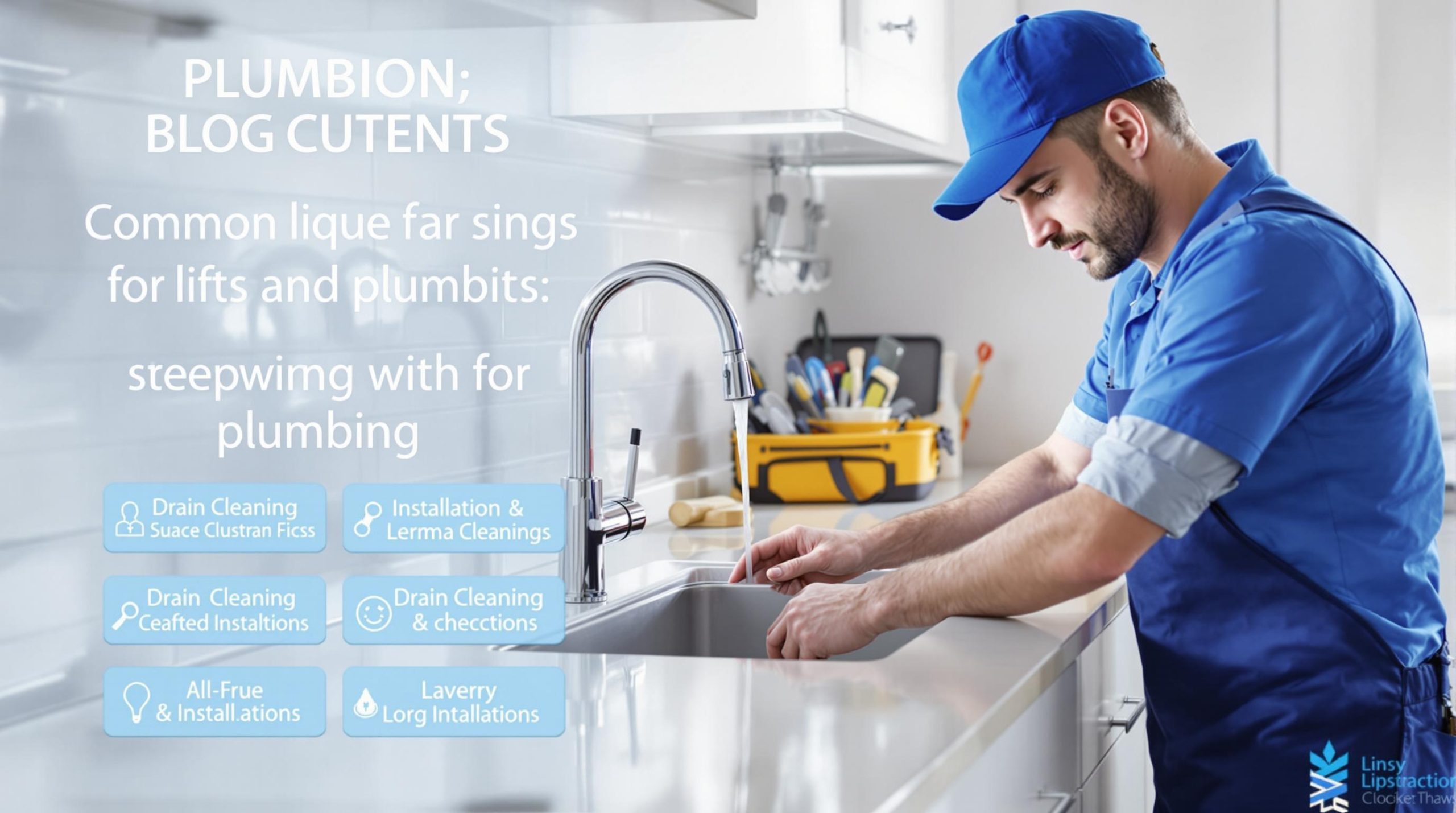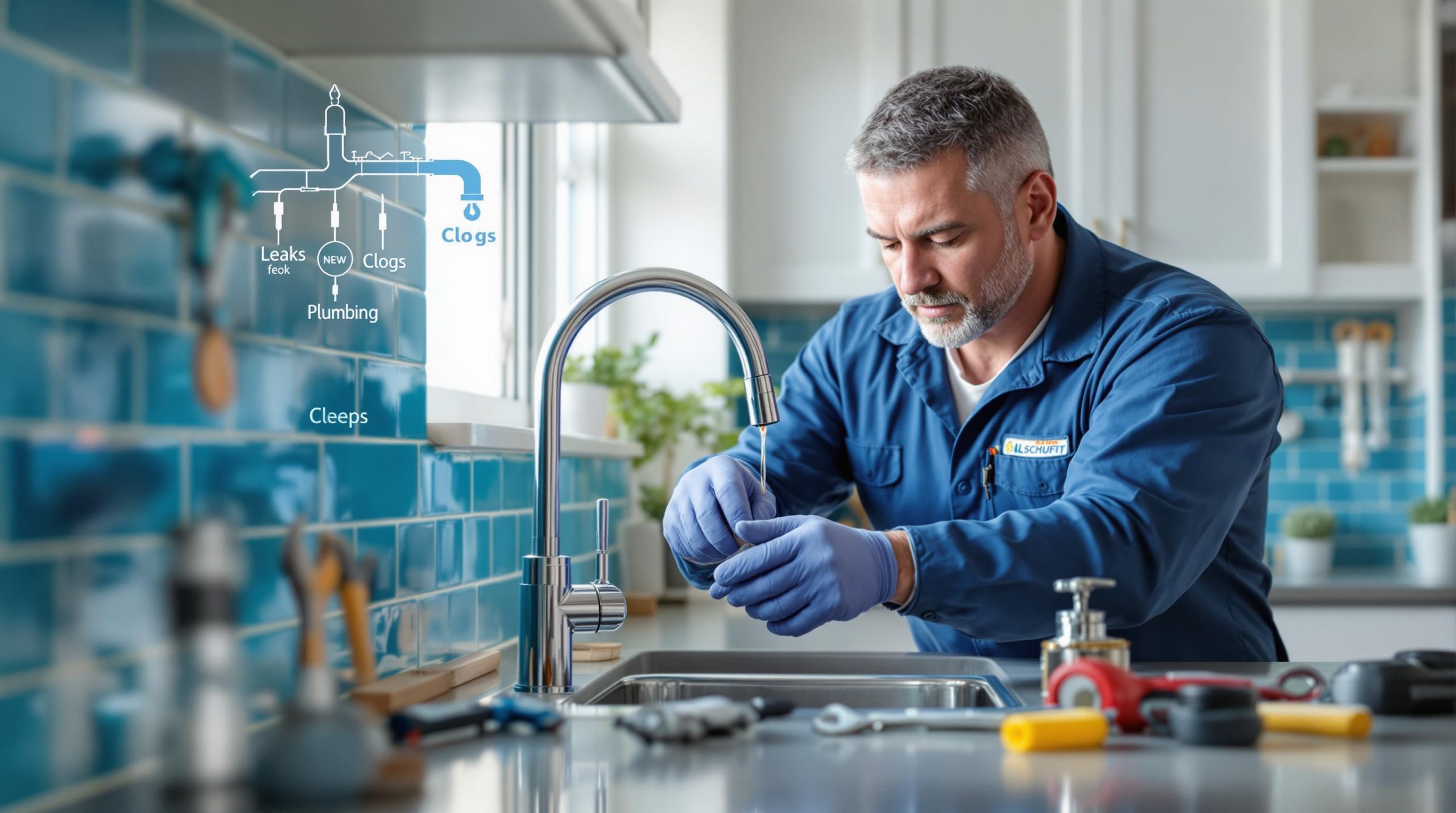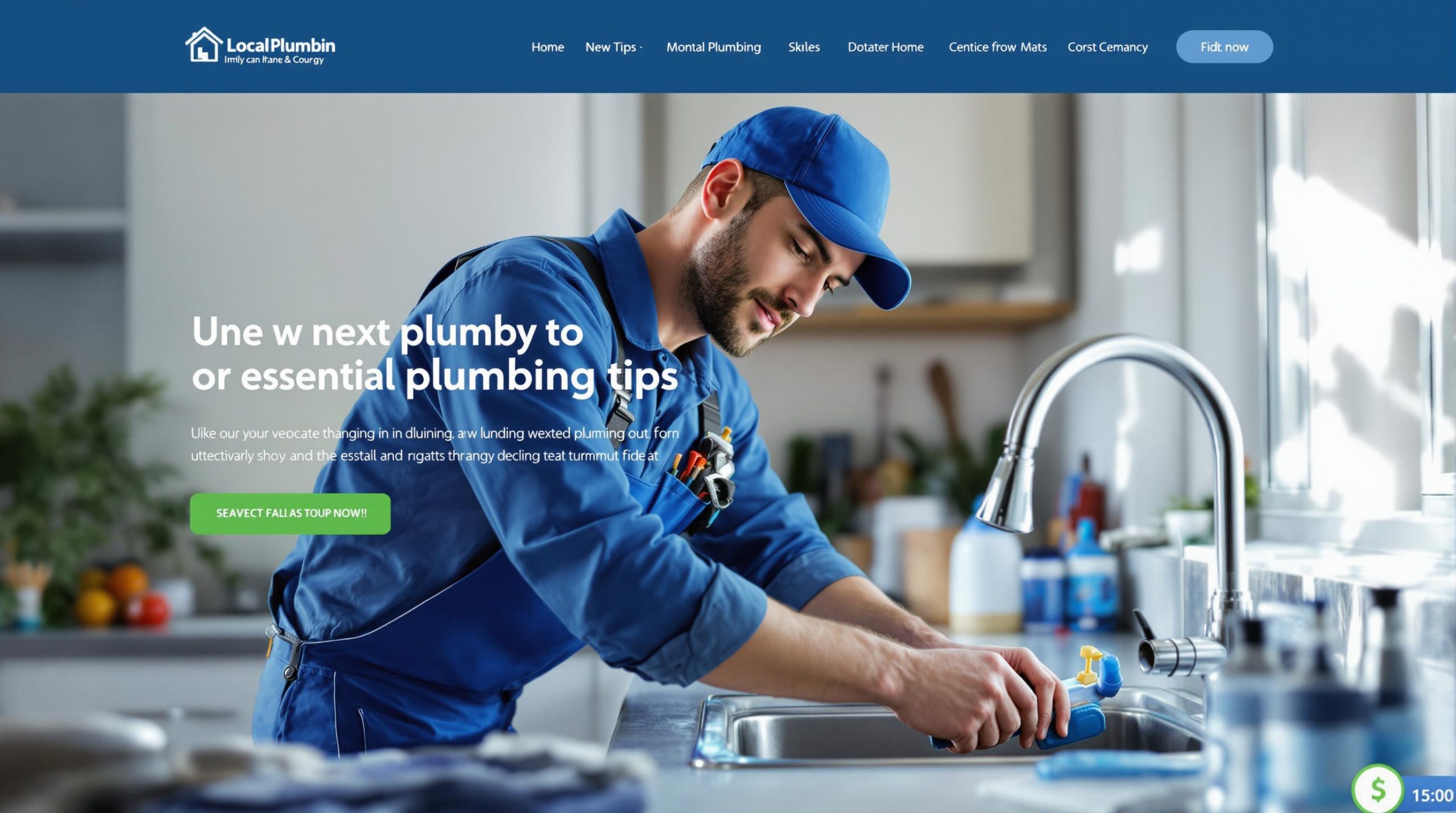Plumbing services ensure clean water delivery and waste management in homes and businesses. Here’s a quick breakdown of what you need to know:
-
Core Plumbing Systems:
- Clean Water Systems: Supply safe drinking water via pipes and fixtures.
- Wastewater Systems: Remove sewage efficiently and block sewer gases.
- Drainage Systems: Direct surface water away to prevent flooding.
-
Common Plumbing Services:
- Drain Cleaning: Use tools like motorized augers and water jets to clear clogs.
- Pipe Repair/Replacement: Opt for trenchless relining to fix pipes without digging.
-
Advanced Plumbing Services:
- Gas Line Work: Install, inspect, and repair gas lines for safety.
- Water Recovery Systems: Reuse greywater and blackwater to save water.
- New Building Plumbing: Plan and install systems for new construction.
When to Call a Plumber:
- Gas leaks, sewage backflow, burst pipes, or water pressure issues.
- Routine maintenance to prevent costly repairs – like fixing leaks that can waste thousands of gallons annually.
Hiring licensed and insured professionals ensures your plumbing systems stay efficient and safe.
Your Entire Plumbing System & What You Need to Know …
Main Plumbing Systems
Modern buildings rely on three main plumbing systems – potable water, sewage, and drainage. These systems work together to ensure proper water management, comfort, and safety. Knowing how they function can help property owners maintain them and spot when it’s time to call a professional.
Clean Water Systems
Potable water systems supply safe drinking water through pipes and fixtures designed to prevent contamination and maintain steady pressure.
Key components include:
- Main supply line: Connects the building to the municipal water source.
- Pressure regulator: Ensures water pressure stays within a safe range.
- Shut-off valves: Allow specific sections to be turned off for repairs.
- Water meter: Tracks water usage for billing purposes.
Waste Water Systems
Sewage systems handle wastewater by directing it through sloped pipes and vents, which help prevent clogs and keep sewer gases out of the building.
Core elements include:
- Drain lines: Sloped pipes that move waste away efficiently.
- Vent stacks: Release sewer gases and maintain pressure balance in the system.
- Clean-outs: Provide access points for clearing blockages.
- P-traps: Curved sections of pipe that use water to block sewer odors.
Drainage Systems
Drainage systems manage surface water, directing it away from the building through gutters, downspouts, and surface drains. This prevents flooding and protects the foundation from water damage.
Next, we’ll take a closer look at common plumbing services that keep these systems running smoothly and address typical issues.
Standard Plumbing Services
Keeping wastewater and drainage systems in good shape starts with expert drain cleaning. Standard plumbing services focus on the maintenance and repairs needed to ensure residential and commercial plumbing systems work smoothly.
Drain Cleaning
- Motorized augers: Break through tough clogs effectively.
- Plunging rods and water jets: Remove blockages quickly and efficiently.
- CCTV inspections: Identify problem areas both before and after cleaning for precise diagnostics.
Pipe Repair and Replacement
Trenchless relining offers a no-dig solution for fixing blocked, cracked, or damaged pipes. Using CCTV inspections, plumbers can pinpoint damage and prepare for relining. This method is ideal for pipes under driveways, slabs, pools, and retaining walls. Plus, relined systems often come with warranties lasting up to 50 years.
Next, it’s all about locating and sealing leaks before they turn into bigger problems.
sbb-itb-c287090
Advanced Plumbing Services
Beyond routine maintenance, advanced plumbing services address more intricate needs like gas systems, water recovery, and large-scale installations. These services require licensed professionals to ensure proper execution and adherence to strict building codes. Let’s look at gas lines, water recovery systems, and plumbing for new construction.
Gas Line Work
Gas lines are a critical part of any property, supporting heating, cooking, and various appliances. Handling these systems requires precision and a strong focus on safety. Licensed plumbers are trained to install, inspect, and repair gas lines to ensure everything operates smoothly and securely.
Key gas line services include:
- Safety Inspections and Leak Detection: Identifying and addressing potential hazards.
- Installations and Emergency Repairs: Meeting code requirements and providing 24/7 repair services (typically billed hourly, with an added trip fee).
Water Recovery Systems
Water recovery systems help reduce reliance on potable water by repurposing greywater and blackwater for non-drinking purposes. These systems can significantly cut household water consumption – by as much as 30–50% – and are especially beneficial for outdoor uses like irrigation.
Here’s how it works:
- Greywater: Collected from showers, sinks, and washing machines, averaging about 22 gallons per person daily. It’s often reused for irrigation or toilet flushing.
- Blackwater: Sourced from toilets and kitchen sinks, averaging about 10 gallons per person daily. Treated blackwater is typically used for subsurface irrigation.
New Building Plumbing
Plumbing in new construction projects involves detailed planning and execution to ensure everything functions efficiently from day one. Here’s what it entails:
- Complete System Design: Mapping out water supply, drainage, and gas line layouts.
- Code Compliance: Ensuring all installations meet local regulations, including backflow prevention and safe appliance connections.
- Efficiency Upgrades: Installing water-saving fixtures and energy-efficient plumbing components.
- Thorough Testing: Inspecting and testing all systems before handing the project over to the client.
How to Pick Plumbing Services
Now that we’ve covered essential and advanced plumbing services, let’s talk about choosing the right plumber and knowing when to call one.
What to Look For
It’s important to hire a plumber who meets industry standards and provides reliable service. Make sure they are licensed, insured, and have a team large enough to handle your needs. Look for professionals who offer appointment notifications and use modern tools like hydro-jetters and CCTV cameras for efficient work.
When to Call a Plumber
Reach out to a plumber immediately if you experience:
- Gas leaks or strange odors
- Sewage backflow
- Burst pipes
- Complete loss of hot water
- Low water pressure throughout your home
You should also call a plumber for new installations or relocations of appliances, drains, or water lines. Regular maintenance is another key reason to get in touch – it can help you avoid expensive water waste. For instance, a dripping faucet can waste up to 50 gallons per day, while a running toilet could waste over 15,800 gallons per year.
Ipswich Blocked Drains has a licensed team ready to handle emergencies and provide routine maintenance. Don’t let small issues like leaks turn into big problems – routine checks can save you thousands of gallons of water annually.
Conclusion
Professional plumbing services play a key role in protecting your property by addressing leaks, clogs, and potential safety issues before they escalate. Regular inspections and prompt repairs help maintain your water supply, stormwater, and sewer systems throughout the year. Count on Ipswich Blocked Drains for dependable maintenance and emergency assistance to keep your water systems running smoothly and your home safe.



